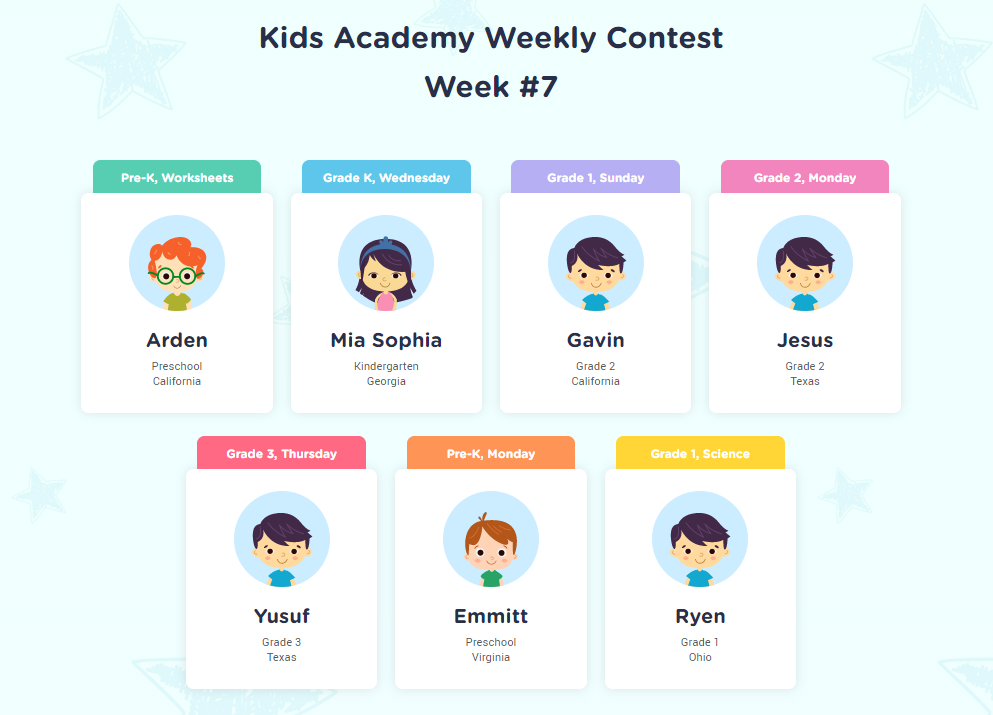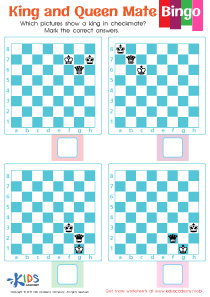Chess strategy understanding Normal Chess Worksheets for Ages 7-8
3 filtered results
-
From - To
Enhance your child's chess skills with our Normal Chess Worksheets designed specifically for ages 7-8. These engaging worksheets introduce fundamental chess strategies, promoting critical thinking and problem-solving abilities. Kids will explore various concepts such as piece movement, tactical maneuvers, and strategic planning. The worksheets incorporate colorful graphics and interactive exercises, making learning enjoyable and effective. Ideal for young learners, our resources encourage both independent play and collaborative learning with peers or family. Foster your child's love for chess while building essential cognitive skills with our thoughtfully crafted worksheets. Start your child’s journey to becoming a strategic chess player today!
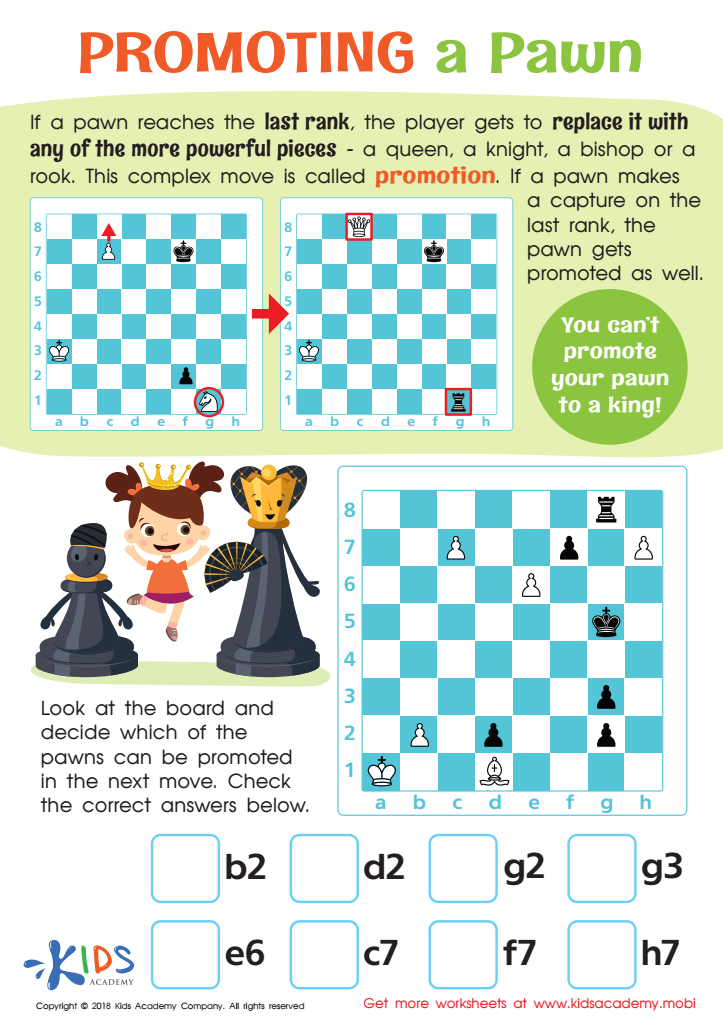

Promoting a Pawn Worksheet
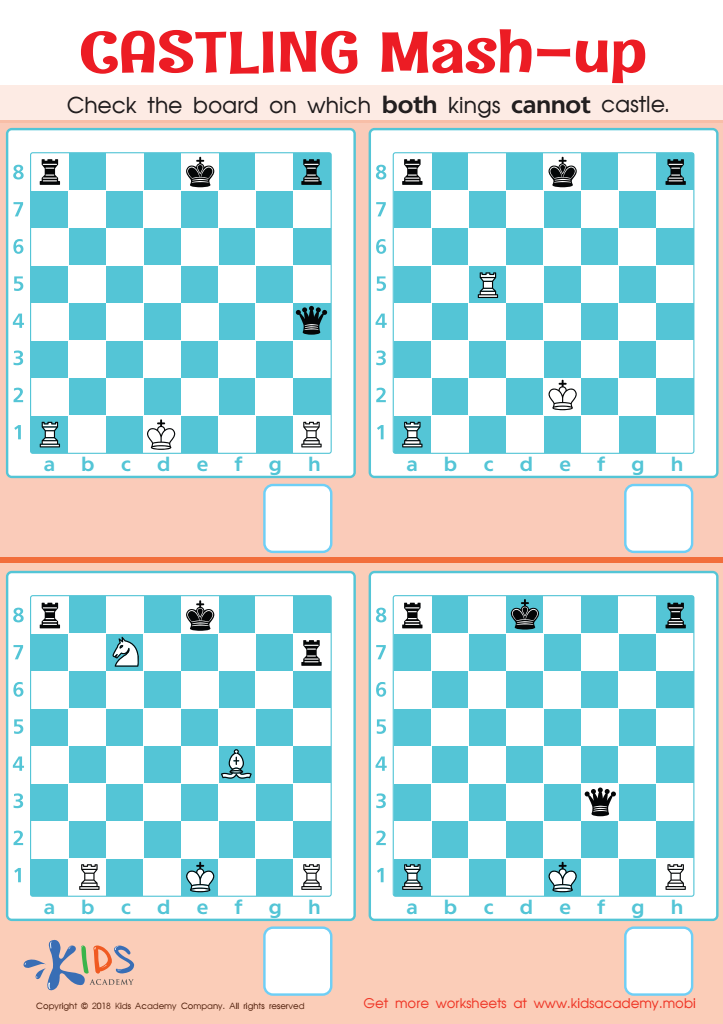

Castling Mash–up Worksheet
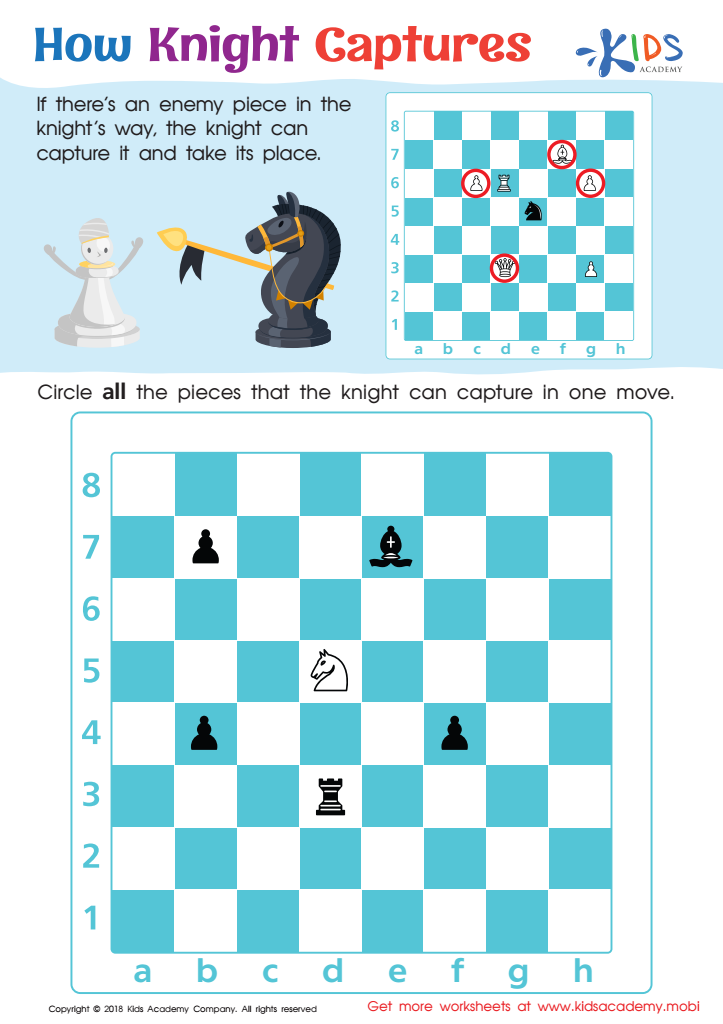

How Knight Captures Worksheet
Understanding chess strategy, especially for children aged 7-8, offers numerous developmental benefits that both parents and teachers should recognize. Firstly, chess enhances critical thinking skills by encouraging children to analyze positions, anticipate their opponent's moves, and make calculated decisions. This strategic mindset translates to problem-solving abilities in academics and daily life.
Moreover, chess teaches patience and the importance of planning, as players must think ahead and adapt to changing circumstances on the board. Such skills foster perseverance and resilience, encouraging young learners to navigate challenges constructively. The game's inherent competitiveness cultivates sportsmanship, allowing children to experience both winning and losing gracefully.
Engaging in chess also enhances memory and focus, essential abilities for young learners who are experiencing the foundational levels of education. The routine practice of remembering various pieces and strategies sharpens cognitive skills over time.
Finally, incorporating chess into a child’s routine creates opportunities for bonding between parents and children or peer interactions in the classroom. This collaborative engagement can strengthen relationships, making learning enjoyable.
In summary, equipping children with chess strategy provides them with versatile skills that boost cognitive, emotional, and social development, benefiting their overall educational experience.

 Assign to My Students
Assign to My Students








